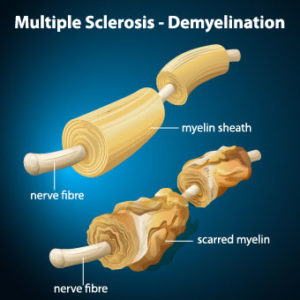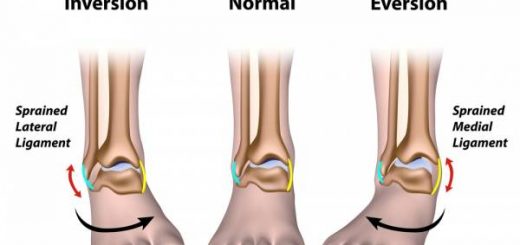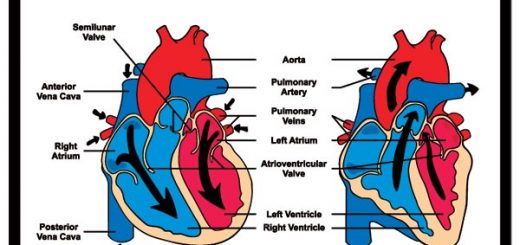A guide to Multiple Sclerosis for first aiders
 What is Multiple Sclerosis (MS)?
What is Multiple Sclerosis (MS)?
Multiple sclerosis (MS) is the result of damage to myelin, the protective sheath surrounding the nerve fibres of the central nervous system. Myelin works like insulating cable helping to conduct messages quickly between the brain or spinal cord and the rest of the body.
Although the exact cause is unknown, it appears to result from a malfunction of the immune system, which then starts to attack its host’s body.
The name of the disease describes the anatomical pathology − myelin sheaths deteriorate to scleroses which are hardened scars or plaques in multiple regions.
What causes MS?
People are usually diagnosed between the ages of 20 and 40, or sometimes later. In rare cases MS has been diagnosed in children. Three women are diagnosed with MS for every two men.
No single cause of MS has been identified, but environmental agents (such as a virus or bacterial infection), genetic factors (the presence of particular genes), family links (although not hereditary, it can occur in more than one member of a family) and climate and control (the number of people with MS is greater in temperate climates and the northern latitudes) are believed to be involved.
What are the symptoms and treatment of MS?
The disease involves a set of leukocytes (white blood cells) called T cells which attach to and damage the myelin sheath.
This results in a disturbance in the transfer of messages from the central nervous system to the rest of the body, which can lead to a range of symptoms including fatigue, loss of limb control, eye problems, incontinence and cognitive impairment.
MS affects every individual differently and many people with MS live full lives for years after diagnosis. There are four types of MS – benign, relapsing remitting, primary progressive and secondary progressive.
Currently, there is no cure for MS, medical treatment concentrates of symptom relief All people with MS experience different symptoms, some people also find it hard to concentrate, become forgetful or experience anxiety, depression or mood swings.
Other symptoms may include fatigue (especially in hot weather), pain, weakness or difficulty in walking. Some people experience problems with speech or bladder or bowel control. These problems can come and go, like any other MS symptom.
Effective treatments are available for most MS symptoms which lengthens the time between relapses, decreases the severity of relapses and slows the formation of new lesions in some cases.






